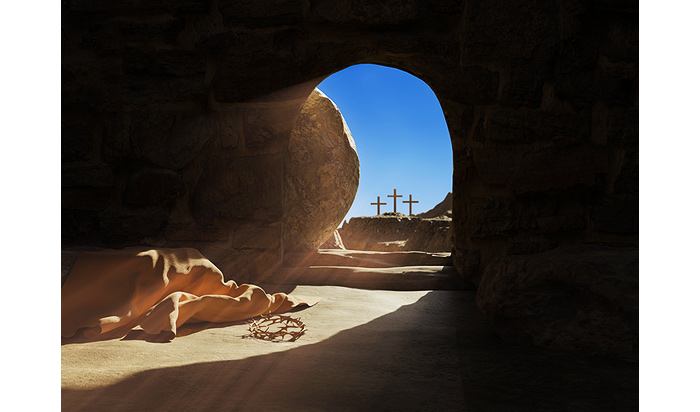Character is not revealed when life shows its best side, but when it shows its worst. The way to tell a print from a tapestry is to look at the seamy side. An unexperienced buyer never turns the chair upside down; an expert always does. The worth of a person, in like manner, is to be judged by how he reacts to the obstacles, the limitations and the crosses of life.
Life can be based on either of two assumptions. One is that the obstacles, trials and sorrows are not a part of the pattern of life. There must be all warp and no woof in fabric of existence.
Hence, in the face of annoyances one must either seek flight from existence through alcohol or barbiturates, or else blame all that happens on others. From this flow discords, revolutions and wars. The second assumption is that everything that happens to us must be changed and transmuted by a Divine Vision so that, instead of defeating, it rather aids us to mount to higher levels of peace.
When a zealous, adventurous spirit is put in bonds, it may seem to be one of life’s greatest tragedies. But when Paul was in prison, he wrote: “I hasten to assure you, brethren, that my circumstances here have only had the effect of spreading the Gospel further.” A prison can be turned into a pulpit; all things cooperate unto good among those whose faith is in God.
The major difference between human beings is not in what happens to them, but in how they react to what happens. Blindness makes some bitter; others, like Helen Keller, it makes apostles of inspiration. It is very easy for young men to see visions and to have the forward look in time; but to the old on whom the sun is casting a forward shadow, it is not easy to dream dreams. Time has no more illusions, or that perilous stuff from which dreams are compounded.
Now the consoling vision must be sought beyond time in the Timeless and beyond space, in the Spaceless. Paul was never greater in his life than when he saw stars through prison bars, and his heart leaped in thankfulness for their distant light. Others looking through the same bars see only mud.
Milton saw more through his blind eyes than men with their seemingly seeing eyes, and therefore could write:
I argue not
Against Heaven’s hand or Will, nor bate a jot
Of heart or hope, but still bear up and steer
Right onward.
Beethoven in his deafness heard melodies through other ears than those which take in only noise.
Life is like a tapestry. We work from behind and with what seems like meaningless little colored threads; but God sees the finished pattern. In such assurance, Job cried out in his affliction:
“I will trust Him though He slay me.”
The purpose of faith is not to assure us that our pains are not painful, that our enemies are not real, that if we have a little more confidence in ourselves “all will turn out well in time”; neither is the purpose of faith to explain always “why” adversity slaps us down, for not even God answered the “whys” of Job. Rather did He begin asking Job questions, whereupon Job discovered that the questions of God were more satisfying than the answers of men.
Love stronger than evil or death
Rather, faith is belief in a truth on the authority of God revealing. As regards the trials of life, faith points to evil’s greatest deed and love’s greatest victory in the Resurrection of Our Divine Lord. If trial and persecution did not fit into the scheme of life, God would not have permitted His Divine Son made man to have even taken a look at the bars of contradiction which is the cross. Evil willed His death, but Goodness willed that love be stronger than evil or death:
“Father, forgive them for they know not what they do.”
When Joseph was thrown into the well by his brethren, he said that their intent was bad but God would make good from it. In the end, the greatness of life depends on whether we are querulous complaining victims like the thief on the left, or whether we are conquerors of circumstances like the thief on the right. To those whoknow the beauty of the conquest of limitations., there is heard, even in the heart of pain, the words:
“This day thou shalt be with Me in Paradise.”
Reflection by Fulton J. Sheen, from Thoughts for Daily Living, Doubleday & Company, 1956.
Top image credit: Illustration of Christ’s victory through his cross and resurrection, from Bigstock.com, © by K_E_N, stock photo ID: 450131183. Used with permission.
Archbishop Fulton J. Sheen (1895-1979) was an American theologian and bishop, first in New York City and then in Rochester, New York. He became well-known for his preaching, especially on television and radio. He hosted the night-time radio program The Catholic Hour for twenty years (1930–1950) before moving to television and presenting a weekly program called, Life Is Worth Living. The show ran from 1951 until 1957, drawing as many as 30 million people on a weekly basis. He wrote 73 books and numerous articles and columns. Mother Theresa of Calcutta always kept a copy of Sheen’s book, Life of Christ, with her wherever she traveled for daily reflection and meditation.



